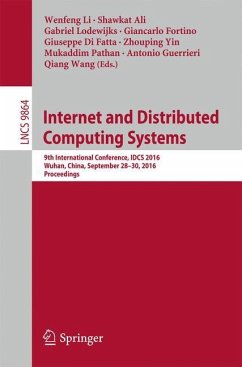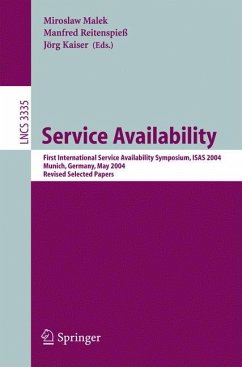
Leveraging Knowledge for Innovation in Collaborative Networks
10th IFIP WG 5.5 Working Conference on Virtual Enterprises, PRO-VE 2009, Thessaloniki, Greece, October 7-9, 2009, Proceedings
Herausgegeben: Camarinha-Matos, Luis M.; Paraskakis, Iraklis; Afsarmanesh, Hamideh

PAYBACK Punkte
58 °P sammeln!
Collaborative Networks A Tool for Promoting Co-creation and Innovation The collaborative networks paradigm offers powerful socio-organizational mec- nisms, supported by advanced information and communication technologies for p- moting innovation. This, in turn, leads to new products and services, growth of better customer relationships, establishing better project and process management, and building higher-performing consortia. By putting diverse entities that bring different perspectives, competencies, practices, and cultures, to work together, collaborative networks develop the right enviro...
Collaborative Networks A Tool for Promoting Co-creation and Innovation The collaborative networks paradigm offers powerful socio-organizational mec- nisms, supported by advanced information and communication technologies for p- moting innovation. This, in turn, leads to new products and services, growth of better customer relationships, establishing better project and process management, and building higher-performing consortia. By putting diverse entities that bring different perspectives, competencies, practices, and cultures, to work together, collaborative networks develop the right environment for the emergence of new ideas and more efficient, yet practical, solutions. This aspect is particularly important for small and medium enterprises which typically lack critical mass and can greatly benefit from participation in co-innovation networks. However, larger organizations also benefit from the challenges and the diversity found in collaborative ecosystems. In terms of research, in addition to the trend identified in previous years toward a sounder consolidation of the theoretical foundation in this discipline, there is now a direction of developments more focused on modeling and reasoning about new c- laboration patterns and their contribution to value creation. "Soft issues," including social capital, cultural aspects, ethics and value systems, trust, emotions, behavior, etc. continue to deserve particular attention in terms of modeling and reasoning. Exploi- tion of new application domains such as health care, education, and active aging for retired professionals also help identify new research challenges, both in terms of m- eling and ICT support development.














